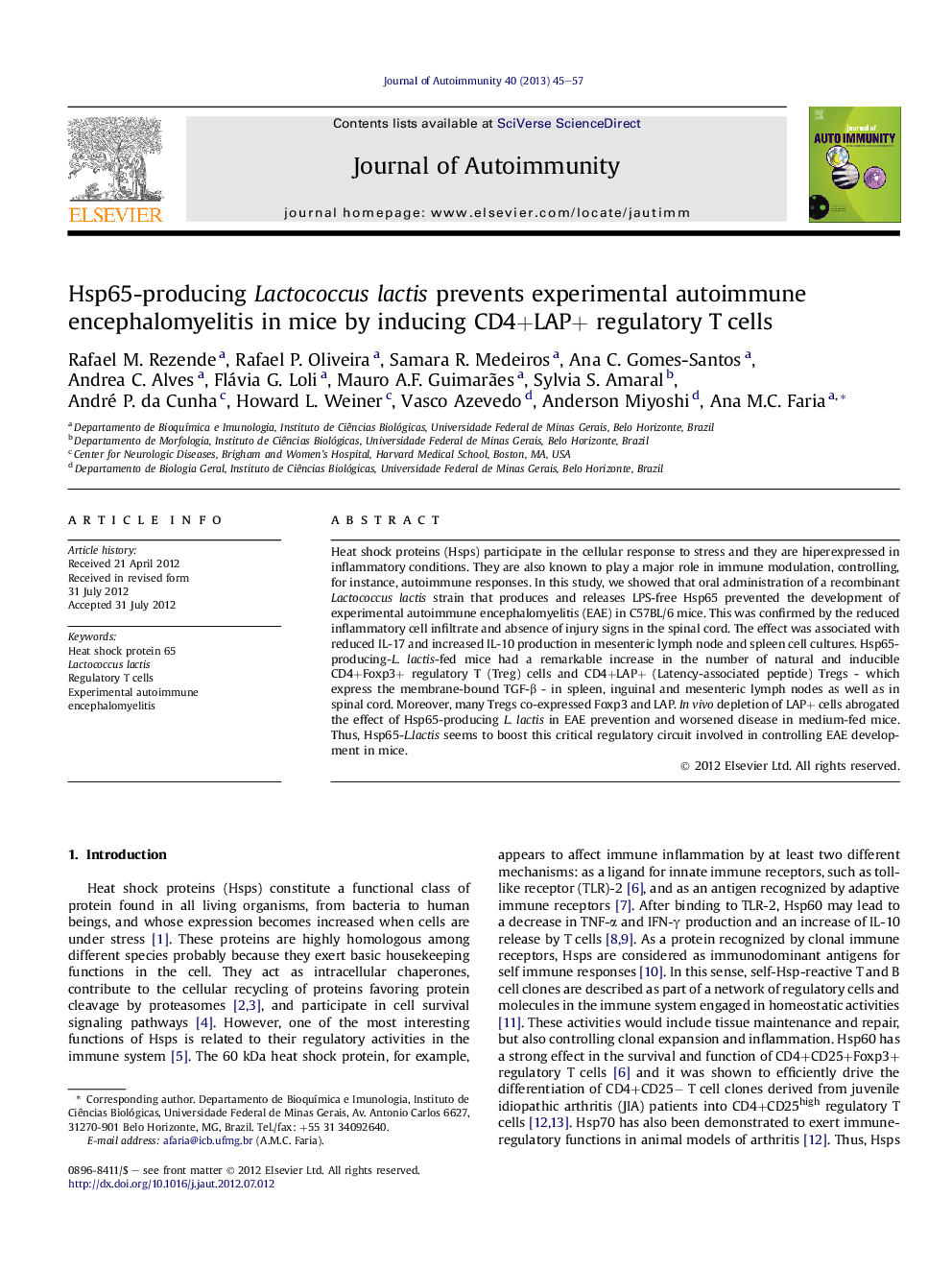| Article ID | Journal | Published Year | Pages | File Type |
|---|---|---|---|---|
| 3367862 | Journal of Autoimmunity | 2013 | 13 Pages |
Heat shock proteins (Hsps) participate in the cellular response to stress and they are hiperexpressed in inflammatory conditions. They are also known to play a major role in immune modulation, controlling, for instance, autoimmune responses. In this study, we showed that oral administration of a recombinant Lactococcus lactis strain that produces and releases LPS-free Hsp65 prevented the development of experimental autoimmune encephalomyelitis (EAE) in C57BL/6 mice. This was confirmed by the reduced inflammatory cell infiltrate and absence of injury signs in the spinal cord. The effect was associated with reduced IL-17 and increased IL-10 production in mesenteric lymph node and spleen cell cultures. Hsp65-producing-L. lactis-fed mice had a remarkable increase in the number of natural and inducible CD4+Foxp3+ regulatory T (Treg) cells and CD4+LAP+ (Latency-associated peptide) Tregs - which express the membrane-bound TGF-β - in spleen, inguinal and mesenteric lymph nodes as well as in spinal cord. Moreover, many Tregs co-expressed Foxp3 and LAP. In vivo depletion of LAP+ cells abrogated the effect of Hsp65-producing L. lactis in EAE prevention and worsened disease in medium-fed mice. Thus, Hsp65-L.lactis seems to boost this critical regulatory circuit involved in controlling EAE development in mice.
► We tested a treatment with Hsp65-producing Lactococcus lactis on EAE in mice. ► Hsp65- L. lactis prevented experimental autoimmune encephalomyelitis (EAE). ► Immune-modulatory mechanisms involved Treg cell expansion, TGF-β and IL-10. ► Depletion of LAP+ Tregs abrogated the suppressive effect of Hsp65-L. lactis in EAE.
